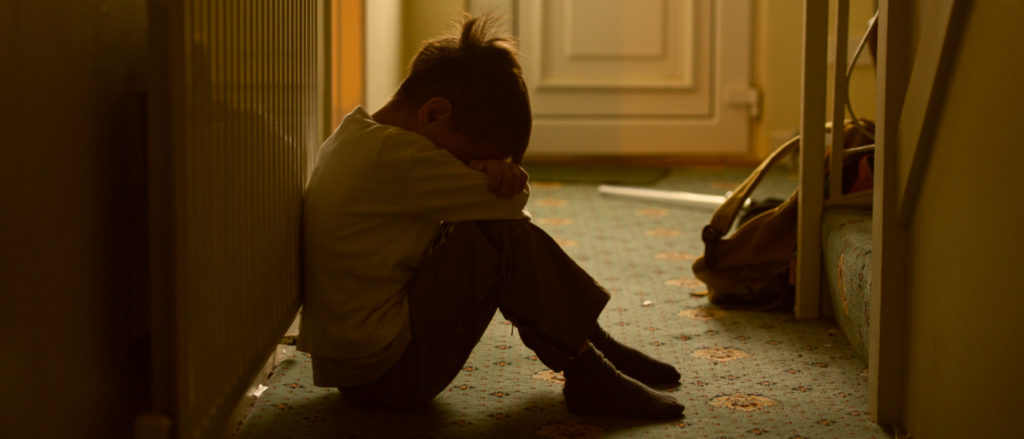How to Help Children Express Their Grief

Photo © iStock.com/fiorigianluigi
Understandably, parents and guardians often hope to shield a child from the harsh realities of life as long as possible. When a death in the family occurs, however, we often overlook or even dismiss the genuine feelings of sadness and sorrow felt by children after the loss of a parent, sibling, grandparent or other close loved one. This article offers five practical ways you can help your child express his or her grief in order to better cope with a death in the family.
Attend the Funeral Together
After a death occurs, many parents and guardians wonder if an infant or child should attend the funeral. Among various reasons for deciding to keep a child at home, people often rationalize that a child is too young to understand the concept or permanence of death or, based on his or her age, simply does not feel the sadness and sorrow that adult family members and friends presently experience.
While there is no simple, one-size-fits-all solution to this dilemma, a child’s age alone should never dictate whether he or she should attend a funeral, memorial and/or burial service. For all but the youngest of infants, the death of a family member probably registers with your child on some level, even if he or she doesn’t show it or appear to understand it. Therefore, unless you feel there is a specific reason not to, your child will probably benefit for the rest of his/her life by attending the funeral and experiencing the reality of loss, an important life lesson, and the conversations/questions that naturally arise.
If the latter thought makes you feel uncomfortable, then please read the following suggestions to help you help your child better cope with the reality of death.
Read a Book Together
When a loved one dies, parents often wonder how to talk to a child about death in an age-appropriate manner. If you find yourself struggling to find the right words, then consider relying on someone else’s words by reading a book to/with your child that explains loss and grief in terms he or she will understand.
The National Association of School Psychologists offers a superb list of books for children coping with loss or trauma (available as a PDF download). In addition to the book’s title and author, this list provides publication information, a brief synopsis and an age range to make purchasing or finding a copy in your local library easier. You should still review/read the book before sharing it with your child, however, in case you find some aspect inappropriate for your child.
Present a Memento
Younger children often find it difficult to understand or accept the concept that a deceased loved one no longer exists in the physical world but henceforth only in their feelings and memories. Fortunately, another physical object can sometimes help a child better grasp and accept the deceased’s transition from a physical presence to existence as feelings/memories in the child’s heart and mind.
If possible and appropriate, consider gifting your child with an item that belonged to your deceased loved one. The value of the object is immaterial, e.g., “Dad’s pen” or “Grandmother’s necklace”; a military service medal or award; a favorite book… The point is that the object should embody some significance, some special meaning or importance, relative to the person who died. When your child receives such an item and learns of its meaning to the deceased, he or she will often treasure the object as a special, private physical connection with the deceased that also reinforces the before/after finality of death.
Plant a Tree
One of the challenges parents often face when explaining death to a child involves questions concerning where the deceased “is” after he or she died. Younger kids, in particular, often struggle to understand the permanence of death and the fact that a loved one will not return at some later time. Moreover, adults often inadvertently make the situation worse by resorting to euphemisms about death and dying, such as “Grandma is sleeping now” or “He went away on a long trip,” which can trigger awkward questions such as “When will she wake up?” or “When will he get back?”
In addition to being honest and direct when explaining the loss to your child (in an age-appropriate manner), you might also want to plant a tree, shrub or perennial plant to provide your child with a living, physical memorial to his or her loved one. Such memorials can help a child better understand and accept the deceased’s transition from a physical presence to existence as feelings/memories in the child’s heart and mind by providing a point of focus.
Moreover, you should allow your child to participate in the selection, planting and care of the plant, which can create a deeper connection between this living memorial and your child’s feelings and memories of the deceased.
Grieve Openly
Regardless of age, people often find it difficult to openly express their grief following the death of a loved one. Even though funerals offer one of the few remaining socially acceptable situations in which sadness, sorrow and/or tears don’t appear out of place, the bereaved often feel real or imagined pressure(s) to hide their emotions and put on a brave face (particularly soon after the funeral/interment service).
Because children generally model the behavior of the influential adults in their lives, you should give your child the gift of permission to express his or her grief by openly sharing your own, when appropriate. No, you probably shouldn’t appear as a total emotional wreck in front of your son or daughter, but you likewise shouldn’t completely bury your feelings inside in order to reassure your kid that everything’s okay.
Instead, when you feel up to it, sit down with your child and allow him or her to see you sad or crying about the deceased in order to inform and reassure him or her that the death of a loved one is one of life’s significant events and that expressing sorrow is both natural and necessary. Openly grieving like this can also provide a natural opportunity to answer his or her questions, to read a book together, plant a tree, etc. (as suggested above).







